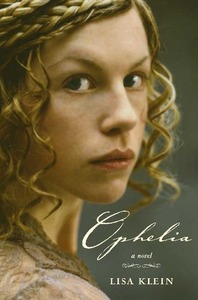You need to sign in or sign up before continuing.
Take a photo of a barcode or cover
The dialogue was beautifully reminiscent of Shakespeare, and I could tell the author had done a huge amount of research. I don't know why, but I wasn't overly keen on the characters or invested in any particular outcome. That being said, anytime I stopped reading I immediately wanted to take up the book again
emotional
medium-paced
Strong character development:
Yes
Loveable characters:
Complicated
Diverse cast of characters:
No
Flaws of characters a main focus:
Yes
Prerequisites for this book: Hamlet, duh. Also, any feminism or critical framework experience. The last one is optional, but it makes the book worthwhile. It's not Wide Sargasso Sea, but it does what it advertises.
My bottom line: I like the book and its heroine. Unlike other leading ladies I have read in similar books, she acts appropriate to her period and setting, but she still presents an assertive identity. Lots of other authors have missed the point and turned their girl into a Mary Sue. That was my biggest concern. But Klein manages to write a believable Ophelia. My hat's off to her.
My bottom line: I like the book and its heroine. Unlike other leading ladies I have read in similar books, she acts appropriate to her period and setting, but she still presents an assertive identity. Lots of other authors have missed the point and turned their girl into a Mary Sue. That was my biggest concern. But Klein manages to write a believable Ophelia. My hat's off to her.
I wanted this book to be better than it was, but Ophelia felt both flat and artificially modern. Some plot devices were painfully cliche. However, if it gets "the kids" interested in Shakespeare, I guess I can't complain.
I have a lot of conflicting feelings about this book.
There was something stylistically that I just didn’t gel with.
I found Ophelia’s voice to read younger than I expected at first, but she did age throughout the book.
The part that I liked most was the bits at the convent, but to anyone who knows me that shouldn’t be a surprise because I’m all about that cloistered life.
The ending was sweet.
Really reinforced the fact that Hamlet is a twat.
There was something stylistically that I just didn’t gel with.
I found Ophelia’s voice to read younger than I expected at first, but she did age throughout the book.
The part that I liked most was the bits at the convent, but to anyone who knows me that shouldn’t be a surprise because I’m all about that cloistered life.
The ending was sweet.
Really reinforced the fact that Hamlet is a twat.
dark
emotional
medium-paced
Strong character development:
Yes
Loveable characters:
Complicated
Diverse cast of characters:
No
Flaws of characters a main focus:
Yes
reflective
slow-paced
Strong character development:
Yes
Loveable characters:
Complicated
Diverse cast of characters:
No
Flaws of characters a main focus:
Yes
My entire knowledge of the play Hamlet comes from the few scenes I've read thus far and the plot synopsis on Spark Notes. I must say that Klein's Ophelia is different from Shakespeare's Ophelia.
In the beginning, Ophelia appears to be just like most female historical fiction characters. ( I would consider this historical fiction, mostly because it is set in the seventeenth century' though it is based on a play.) She likes to learn, is strong willed, and refuses to be a lady. While Klein's intention is to portray Ophelia as a feminist in a time where feminism was unheard of, Ophelia comes across as your usual historical fiction gal. Thankfully, she achieves character to growth, though the ending somewhat irks me.
However, I do like the fact Klein gave Ophelia some back story and a better ending than just drowning herself in her madness. The women at the convent in France were all significantly different from one another. I liked how Marguerite's story related to Ophelia's tragedy.
Overall, I really enjoyed this book and would recommend it to people who enjoy the story of Hamlet.
In the beginning, Ophelia appears to be just like most female historical fiction characters. ( I would consider this historical fiction, mostly because it is set in the seventeenth century' though it is based on a play.) She likes to learn, is strong willed, and refuses to be a lady. While Klein's intention is to portray Ophelia as a feminist in a time where feminism was unheard of, Ophelia comes across as your usual historical fiction gal. Thankfully, she achieves character to growth, though the ending somewhat irks me.
However, I do like the fact Klein gave Ophelia some back story and a better ending than just drowning herself in her madness. The women at the convent in France were all significantly different from one another. I liked how Marguerite's story related to Ophelia's tragedy.
Overall, I really enjoyed this book and would recommend it to people who enjoy the story of Hamlet.
Possibly one of my favorite books ever read. If you're like me, and was always a little disappointed with Ophelia from Hamlet, this is the best thing to happen to you. Read it.






